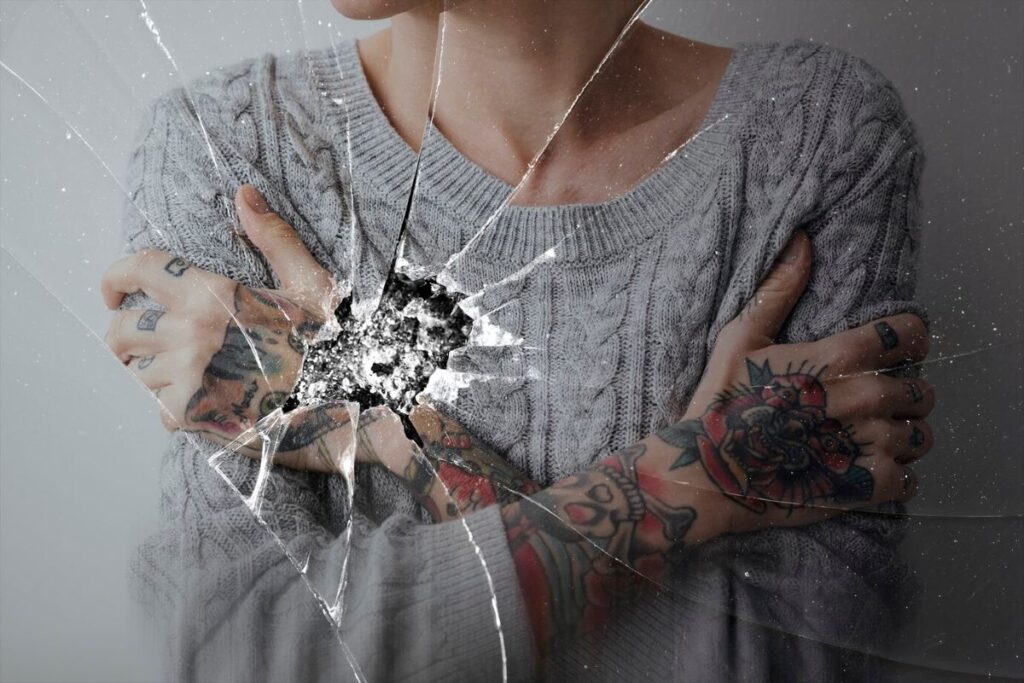First, some statistics. While it’s absolutely undeniable that men suffer under domestic violence just like women, the numbers are strikingly uneven. In Canada, 44 per cent of women over the age of 15 reported some sort of home-based violence, be it psychological, sexual or physical. For men, that number is 18 per cent. Bear in mind that these statistics are only based on self-reported incidents — only those who were capable to speak are accounted for while many others suffer in silence. In an age when social media influencers and others in real power are attempting to reinforce a patriarchal society, through means of violence or otherwise, no statistic is more worthy of repetition.
It doesn’t matter your gender, though it’s more likely to happen to you if you’re a woman; domestic violence is the dark, latent spectre of suburbia since its erection. Be it an apartment complex, a trailer or a luxurious Cape Cod home, those statistics can only mean some of them are in distress. The stagnation of the COVID pandemic only made matters worse, though it’s difficult to blame it entirely when the rate has been steadily rising in Canada for the past five years.
The general toxicity of Donald Trump and influencers like Andrew Tate and Jordan Peterson have created an even worse environment for women, transgender and others in the LGBTQI movement. If you are living in a home where domestic violence is happening, here is some vital information you should know.
Shelters
During the first year of the COVID-19 Pandemic, of the 557 residential facilities set up to shelter survivors of domestic violence, one in three were profoundly impacted. In 2021, the United Nations released a report calling domestic violence a “Shadow Pandemic” occurring in 13 different nations across the globe including Africa, East Asia and Eastern Europe. In the U.S., The American Journal of Emergency Medicine said that numbers of domestic violence incidents worldwide have increased from 25 per cent to 33 per cent.
COVID is no longer an emergency, but the psychological and sometimes physical wounds can remain for a long time. Furthermore, one in five women who leave a shelter return to live with their abuser, continuing the cycle.
The problem now, as ever, is funding. Canadian women’s shelters received various sums from the provincial and federal governments during the pandemic, but they’re slated to lose hundreds of millions. In April 2020, Ottawa provided $300 million of their emergency pandemic funding to fight violence against women. Now, that funding is about to be cut off.
Call The Police, Except…
When we first hear the words domestic violence, a lot of tragic images come to mind, but perhaps one of the most common is the sight of police breaking up a commotion in a home. It’s one burned in our retinas from years of such portrayals in TV and cinema. The hit 90s reality FOX show “COPS” and its subsequent imitators featured such scenes at least once a week. As we know, reality television is the farthest thing from real life. Unfortunately for a stunning number of domestic violence survivors in the US, 40 per cent of the perpetrators are members of the force. It’s important to bear in mind that these are only of reported cases, as many live with an abuser in silence. The notion that Canada is facing any better circumstances would be naive, as a male member of the RCMP has a one in 6,500 chance of even facing a judge for a domestic violence charge. Fortunately, there are ways to seek help discreetly.
Getting Help Discreetly
There are ways of getting legitimate help safely and discreetly, if you feel you are living under the threat of domestic violence. During the rise in cases during the pandemic, Canada’s longest running shelter, Interval House, worked with a creative agency to launch a secret website.
At first glance, The Way to Live appears like any other women’s fashion blog online, providing articles about skin care and the best hand bags. Hold down on the escape key, however, and it transforms into “The Way To Leave” with a hotline number and important information for survivors. Often, abusers monitor their victim’s computer activity, and could find saved Google searches for abuse-related topics.
In public, should an emergency occur, it’s important to remember the hand signal for help: Hold your hand with your thumb tucked into your palm, then trap your thumb with your fingers. Bartenders also understand what asking for an “Angel Shot” means if that public situation should happen in a bar. Many workers at shelters recommend police and legal involvement only after the survivor’s safety is ensured.
Shelter Residence and Safety
Staying in a shelter has a number of stigmas around it. The unfortunate truth is, as underfunded in Canada as they may be, they’re still a survivor’s best option to escape a dangerous or harmful situation. Nevertheless, myths about what it’s like to stay in a shelter persist online, and portrayals on television and the news suggest shelters are unpleasant, overcrowded with no privacy, right down to outright lies about their connections with law enforcement. A major concern for those in the transgender community is whether or not they’ll be taken at all.
First, the transgender community is always welcome in a safe shelter if they require help, as shelters have worked hard to prepare for such integration. It’s also completely confidential, though the workers are mandated to report should you flee the facility. Privacy will obviously vary, but the shelter is doing what it can to provide a safe space environment where you can make your own decisions about going forward.
If you are in a situation that sounds similar to anything mentioned here, or are looking for help, please don’t hesitate to contact:
Assaulted Women’s Hotline – 1-866-863-0511
Fem’aid (For French-speaking survivors) – 1-877-336-2433
Amelia Rising Sexual Assault Support Centre – 1-613-544-6424
Toronto Rape Crisis – 1-647-424-1134
Kenny Hedges | Contributing Writer








